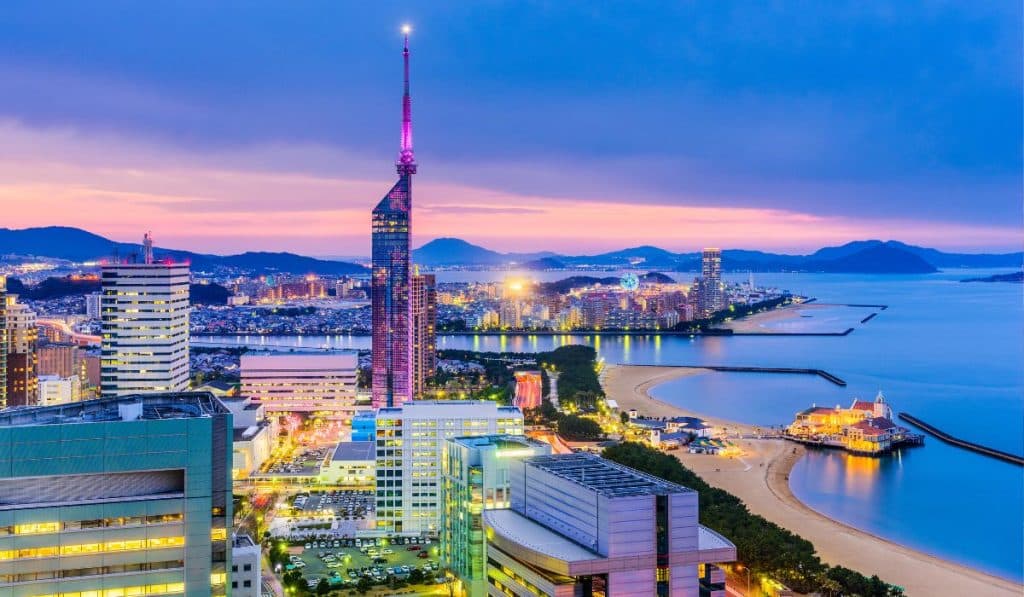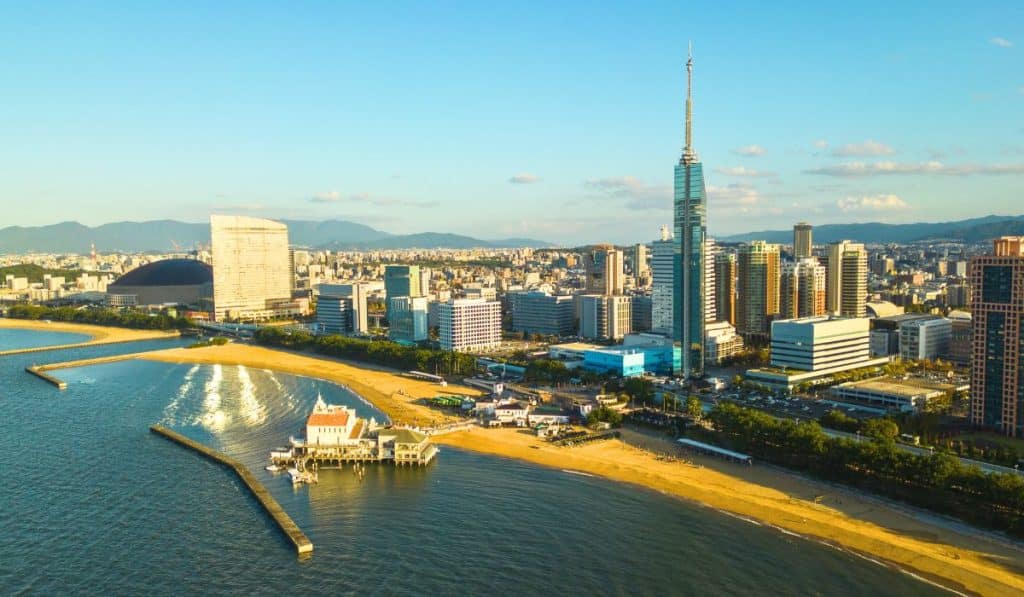In the evolving landscape of work, the number of digital nomads continues to grow around the world, especially post-COVID-19. Empowered by reliable internet connections, digital nomads work remotely as they travel, with Europe and the United States being some of the most popular destinations for these remote workers. But there is a new location now vying for their attention: Fukuoka, Japan.
Last October, Fukuoka hosted a promotional event for digital nomads, attracting about 50 participants from 24 countries. They stayed in hotels with co-working spaces and enjoyed the freedom to work and socialize.
The participants’ schedule included interactions with locals fostering cultural exchange, such as potting plants with children and learning traditional dances. City official Yokoyama Yuichi emphasized Fukuoka’s energy and the initiative to involve locals in showcasing the city globally.
Digital Nomad / Youtuber Sergio Sala, who attended the event, highlighted Fukuoka’s appeal through his videos, showcasing its blend of urban and natural environments and the convenience of its compact city layout.
“I had high expectations as it was my first time even in Japan, but it totally went better that expected. I got to understand the culture as I spent a lot the time with locals who helped translate everything. Weather was really good in October”, Sergio shared.
“I was very surprised at how easy was to find coworking spaces and coffee shops to work, wifi is really fast, and moving around the city is very easy once you understand their metro system” Sergio continued.
Digital nomads are an attractive demographic for cities like Fukuoka. The Japan Digital Nomads Association estimates that currently, about 35 million people live this lifestyle, a number expected to rise to 1 billion by 2030. These individuals often have higher-than-average incomes and tend to stay longer in a location than typical tourists, making their potential benefit to the local economy much higher than the average tourist. They also frequently work as freelancers, offering a ready workforce for local startups.
However, challenges such as language barriers and a shortage of co-working spaces, especially those open at night, need addressing. Yugyo, a Fukuoka-based company, is working on these issues, with representative Osera Ryo suggesting collaboration with other Asian cities to enhance the region’s appeal to digital nomads.
Amidst this backdrop, the Japanese government, under Prime Minister Fumio Kishida’s administration, is considering introducing a digital nomad visa. This initiative reflects the global shift towards remote work and the desire for cultural exploration. If introduced, the visa could revolutionize remote working in Japan, potentially starting as early as the next fiscal year.
The Immigration Services Agency (ISA) is involved in drafting this visa, which may include specific provisions for visa and residential status tailored to digital nomads. Additionally, considerations are being made regarding taxation and healthcare coverage for visa holders.
Fukuoka’s pioneering efforts in attracting digital nomads and Japan’s potential visa introduction represent a significant shift in the global work environment for the country. Japan is making a unique effort on the municipal level to include digital nomads in cultural programs and integrate these short- to long-term international residents into the local community in thoughtful ways.
With a greater support structure around them, digital nomads are more likely to get out of their remote work bubbles and make new local connections. These moves could make Japan a key player in the growing trend of digital nomadism, offering novel opportunities for remote workers and the cities that host them.




